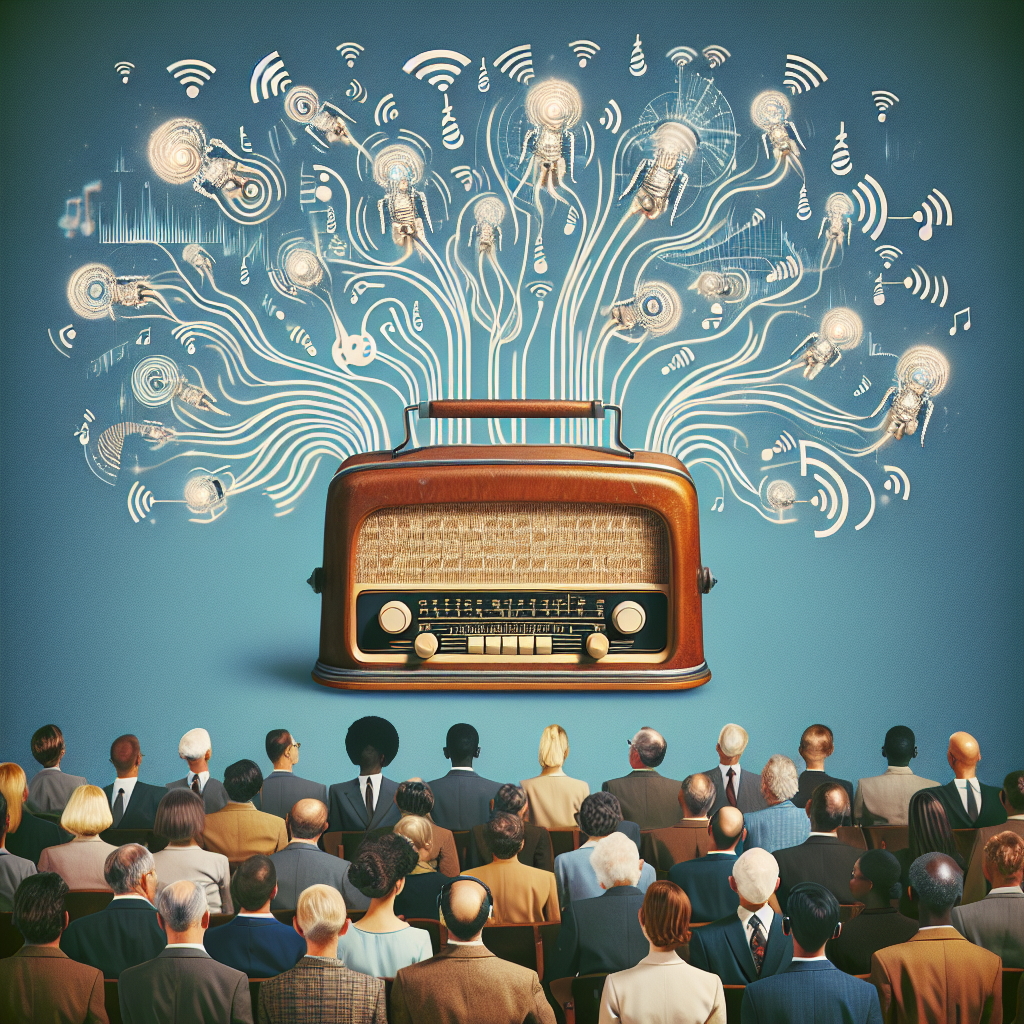AI in Radio Broadcasting: Enhancing Programming and Audience Engagement
Artificial Intelligence (AI) has been transforming various industries, and radio broadcasting is no exception. Through the use of AI technologies, radio stations are able to enhance their programming, engage with their audience in new ways, and streamline their operations. In this article, we will explore the impact of AI on radio broadcasting, its benefits, and how it is revolutionizing the industry.
Benefits of AI in Radio Broadcasting
1. Personalized Content: AI algorithms can analyze listener data and preferences to create personalized content for each listener. This includes music playlists, news updates, and advertisements tailored to individual tastes. By delivering content that resonates with each listener, radio stations can increase audience engagement and loyalty.
2. Automated Programming: AI-powered tools can help radio stations automate various aspects of programming, such as scheduling, content curation, and playlist creation. This allows broadcasters to focus on creating high-quality content while AI handles the repetitive tasks.
3. Enhanced Audience Engagement: AI technologies enable radio stations to interact with their audience in real-time through chatbots, social media integration, and personalized recommendations. Listeners can request songs, participate in polls, and receive personalized messages based on their preferences.
4. Improved Advertising Revenue: AI can optimize ad placement and targeting based on listener data and behavior. This helps radio stations maximize advertising revenue by delivering relevant ads to the right audience at the right time.
5. Streamlined Operations: AI-powered tools can help radio stations streamline their operations by automating tasks such as content moderation, transcription, and metadata tagging. This frees up time and resources for broadcasters to focus on creating compelling content.
How AI is Revolutionizing Radio Broadcasting
1. Content Creation: AI technologies can help radio stations create high-quality content by analyzing listener data, trends, and preferences. This includes generating music playlists, news updates, and even writing scripts for radio shows. AI can also assist in editing audio content, removing background noise, and enhancing sound quality.
2. Audience Insights: AI algorithms can analyze listener data to provide valuable insights into audience behavior, preferences, and engagement levels. Radio stations can use this information to optimize their programming, target advertising campaigns, and enhance listener experience.
3. Real-time Interaction: AI-powered chatbots and voice assistants enable radio stations to interact with their audience in real-time. Listeners can request songs, participate in contests, and receive personalized recommendations through voice commands or messaging platforms.
4. Predictive Analytics: AI can predict listener behavior and trends based on historical data, enabling radio stations to anticipate audience preferences and tailor their programming accordingly. This helps broadcasters stay ahead of the competition and deliver content that resonates with their audience.
5. Monetization Opportunities: AI technologies can help radio stations increase advertising revenue by optimizing ad placement, targeting, and performance tracking. By delivering relevant ads to the right audience, broadcasters can maximize revenue while providing a seamless listening experience for listeners.
FAQs
Q: How does AI personalize content for radio listeners?
A: AI algorithms analyze listener data, preferences, and behavior to create personalized content such as music playlists, news updates, and advertisements. By delivering content tailored to individual tastes, radio stations can enhance audience engagement and loyalty.
Q: Can AI help radio stations automate programming tasks?
A: Yes, AI-powered tools can automate various aspects of programming, including scheduling, content curation, and playlist creation. This allows broadcasters to focus on creating high-quality content while AI handles the repetitive tasks.
Q: How does AI enhance audience engagement for radio stations?
A: AI technologies enable radio stations to interact with their audience in real-time through chatbots, social media integration, and personalized recommendations. Listeners can request songs, participate in polls, and receive personalized messages based on their preferences.
Q: How can AI help radio stations optimize advertising revenue?
A: AI can optimize ad placement and targeting based on listener data and behavior. This helps radio stations maximize advertising revenue by delivering relevant ads to the right audience at the right time.
Q: What are some examples of AI applications in radio broadcasting?
A: AI applications in radio broadcasting include personalized content creation, audience insights analysis, real-time interaction through chatbots and voice assistants, predictive analytics for programming optimization, and monetization opportunities through targeted advertising.
In conclusion, AI is revolutionizing radio broadcasting by enhancing programming, engaging with audiences in new ways, and streamlining operations. By leveraging AI technologies, radio stations can create personalized content, automate programming tasks, optimize advertising revenue, and deliver a seamless listening experience for their audience. As AI continues to advance, the future of radio broadcasting looks brighter than ever.

